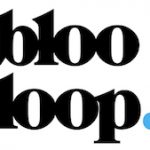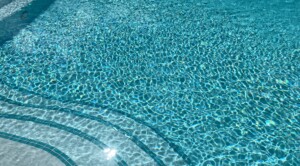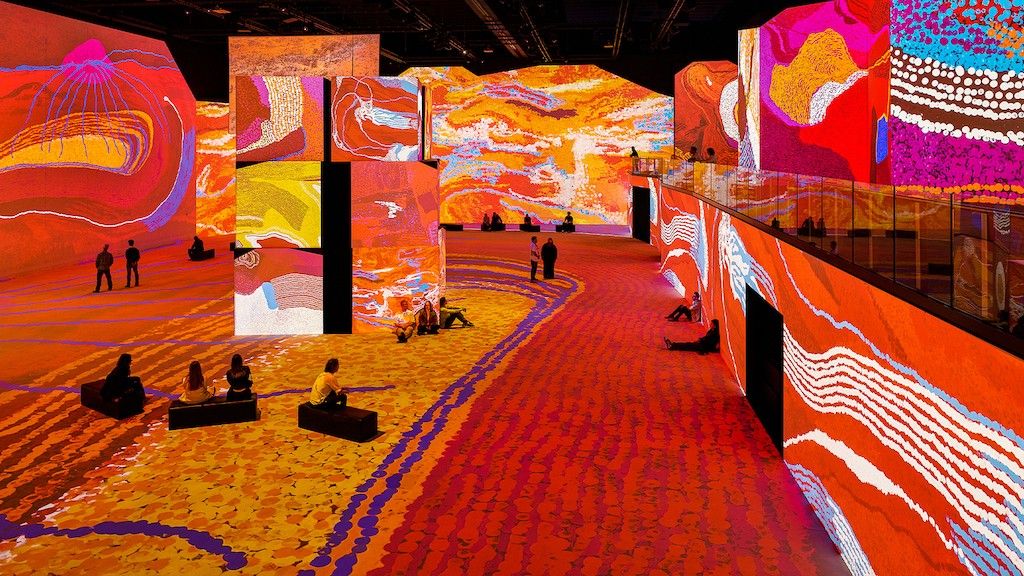Related: Monkey King Theme Park Creator to present at UCLA-USC Media & Culture Conference / New Disney project in Shanghai set to be a game changer for the THEME PARK industry in China / China Theme Park Expansion Summit a Shanghai Success / Zhonghong Real Estate signs Thinkwell to Design Monkey Kingdom Theme Park for Beijing / “Kind of fun to do the impossible” – breaking ground at Shanghai Disneyland
Chinese film director and producer Zhang Jizhong recently attended the Media and Culture in Contemporary China conference, at the University of California – Los Angeles (UCLA). Brent Young, co-founder of Super 78 Studios, specialists in animation, visual effects and experiential new media, met with Jizhong to discuss his plans for his Monkey Kingdom Theme Park and his drive to become the “Chinese Disney”.

Shanghai Disneyland broke ground last year, heralding the start of a new era in entertainment in China. Disney CEO Bob Iger expects the results to be “authentically Disney and distinctly Chinese”. With no Disney Channel to lead the charge, Disney have had to work hard to break into the market, setting up Disney English language schools and investing in the production of Disney-branded movies for the local market. However, with the Chinese population’s increasing buying power and a taste for ever more sophisticated entertainment it would seem that there is an opportunity to create a home-grown high quality theme park that reflects Chinese culture.
Zhang Jizhong is among the entertainment professionals shaping China’s entertainment and theme park industry and now eyeing a global market. Jizhong made his name in China with the “Journey to the West” TV series and his next project is the development of a Monkey Kingdom theme park. The 400 year old story of Monkey’s spiritual journey is popular in Chinese culture and has already spawned hundreds of Monkey King “experiences”. Influenced by Walt Disney, Jizhong is keen to create a world class attraction which is rooted in Chinese creativity, using multiple creative teams to design and develop the concept and a mix of hi-tech media experiences and live shows.
Young: What’s your involvement in the Monkey King theme park and where are you in the park’s progress?
Jizhong: In China, when you do a theme park, land is the most important thing because china has such a vast demand for land and the government have to allocate land to you. Land is no longer a problem for us; the government departments have been very supportive since they saw our demo. We have now completed the concept design phase and we’re awaiting government approval.
Young: And how did you get involved in the theme park, was it your idea?
Jizhong: Yes, completely! Before I proposed the idea there were no original Chinese theme parks at all. Almost all Chinese theme parks, including Happy Valley, even if they are called theme parks they are copying foreign ideas. There is no Chinese creativity. Since 1986 and the old Chinese TV show of "Journey to the West", after that everyone was doing that park and it’s just been abused. There are almost 700 Journey to the West palaces. The size may be just this big, sometimes even smaller just a room, no creativity no technology just some statues…just 2 eyeballs with a ghost noise!
I thought of building this park in 2006, because in the past I built 11 film studios in China for the production of the TV series. All the local governments supported the production because they wanted to have the tourism development.
I want this theme park to spread Chinese cultural elements, just like Disney does with the American culture. Back then I was poor with little money but I took my own money and travelled round to see all the parks of every country including Thailand, Australia, Japan, Korea, France, Florida and every park in China.
Young: So it sounds like you have a long passion for theme parks. Is that because you want people to experience your movies, ideas and creativity in a way that they can connect with it by being there in the experience? Like standing in a movie set?
Jizhong: I’m more inspired by Walt Disney. I read a book about him – when it was translated he was like some happy hero. I know his experience was not that smooth but despite all the setbacks he succeeded. Back then he didn’t realise what a landmark his park was going to become. A key point of the success of Disney is the whole kingdom lies in the Disney theme park and that’s become the American ideal. So I’m thinking that I should build that Chinese landmark
Young: Obviously right now Disney’s building Shanghai. You’re building something completely Chinese. Disney will of course bring western influence and western designers, what do you think the key difference will be between what you’re creating and what Disney will be creating?
between what you’re creating and what Disney will be creating?
Jizhong: The fundamental difference is that our theme park is based on a Chinese story. We have so much rich story to explore, so much to inspire people’s imaginations and of course we can turn that imagination into reality. Disney is composed of many stories. We have just one single story – such a long journey that guests can experience and relate to. Everyone’s life is a journey to the west and everyone has to face their monsters and inner demons and desires.
Young: There sounds to be an essence of spirituality in the core of your park. Western theme parks like Disney don’t have a spiritual element. Do you think this is something a little deeper and maybe more Chinese than we’re used to?
Jizhong: What I want to do is to use modern technology and design to have people experience the spirituality as part of their entertainment experience. In life and in our story the thing is for you to conquer all the difficulties and temptations. All Asian people are very familiar with this story. We want every guest at Monkey Kingdom to relate to the characters in the story as they face what they have to do.
Young: Will it be a managed experienced throughout every one of the attractions, or like the Disney formula where you can go to any attraction at any time? How will you progress through the story?
Jizhong: The difficulty is that it is such a big park that you can’t have people going through in the same order. But what matters is the content that goes into the park, so people can go different ways which is also in line with European theme park design.
Young: So some of the influences and what works in theme parks in the West are being applied to this new theme park. But are there any key differences? Is there one attraction that you can talk about that would be different to US theme parks?
Jizhong: Well we do have good western designers. I have divided the theme park into several regions. At the start we will have 500 people gathered into a circular “ride” introducing the characters in front of them on a screen. Then the screen just opens and disappears and what was shown on the screen will be just the same as what you see in reality in front of you. From the stage will be forest and on the 2 sides will be stores and restaurants and another transportation system so that then you can go different ways.
Young: So this is transporting people from one world to the new world through this film?
Jizhong: Yes. We originally actually designed a “time machine” for this so that people would enter through a “time tunnel”. They would actually enter the time tunnel and go from modern China all the way back to the Tang Dynasty and get off in another world. But then we chose an island for this theme park so we can’t use a tunnel! Maybe in another park…
Young: Where will the theme park be and when will it be opening?
Jizhong: We are talking with Beijing so because there is such a huge population there and also so many tourists – last year Beijing had 180 million tourists. Completion in 3 to 5 years.
Young: So you’re opening at almost the same time as Disney Shanghai. Is the theme park going to be enclosed or mostly outdoors?
Jizhong: Mostly enclosed – Beijing has such a cold winter. Shanghai is also facing the same problem because it can also be very cold.
Young: What projects are you currently working on?
Jizhong: Both theme parks and movies. The theme park is definitely a more complex project because it involves the government and financing, land and also national/state policy. It has some very tricky problems out of my control.
With the movie I’m producing it so I have more control but it’s also very difficult. It’s a co-production English language movie. Between the east and west there are so many differences to get across – you have to find the balancing point. You can’t just please the western audience because you have to go back to china everyone. You have to please both sides.
Young: We saw in the news recently that the Chinese Government had clamped down theme park development in China. Has this affected you?
Jizhong: In China many people don’t want to build a theme park, they just want to have the land. Many Chinese businessmen have no morality. They don’t care about the theme park – if they lose money on that they can still make money back on the real estate. Our theme park is different because the government know that we are really committed to the project.












